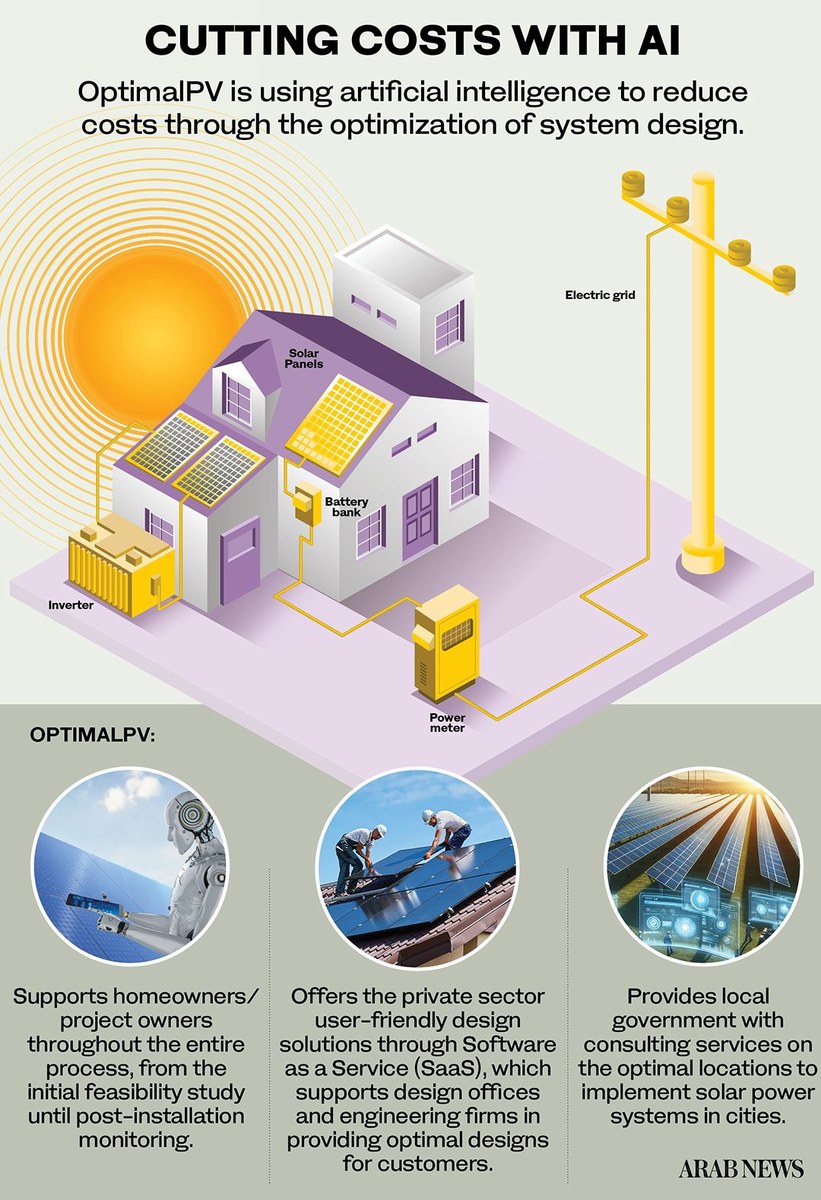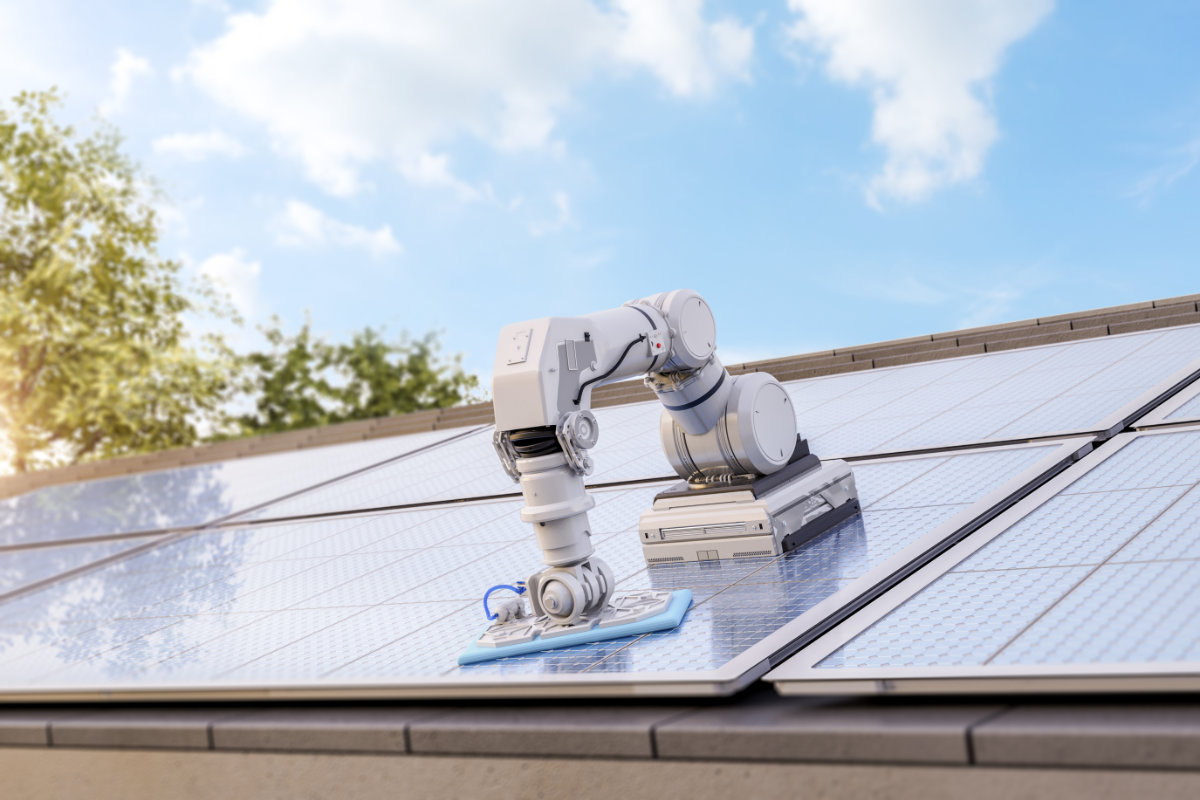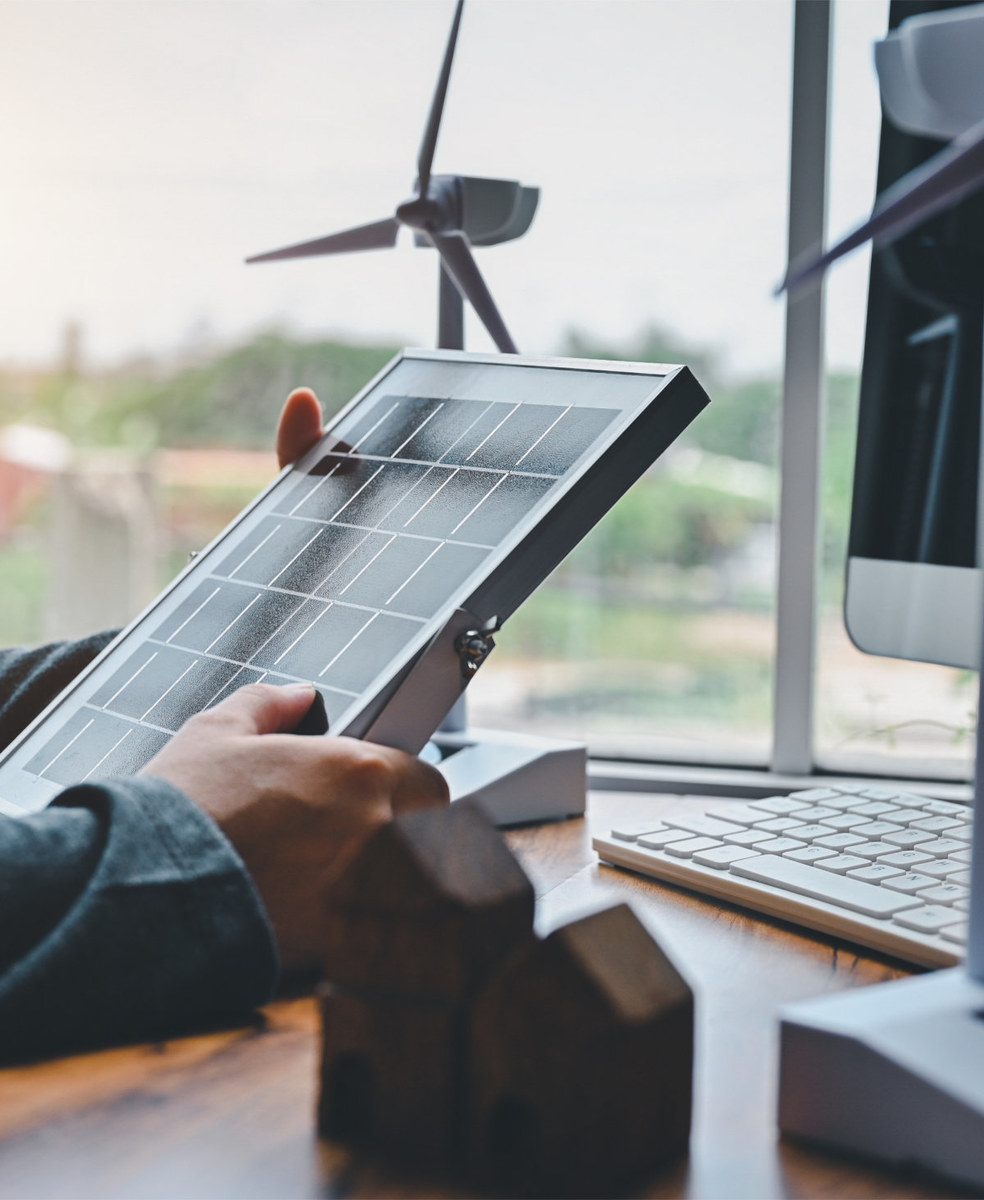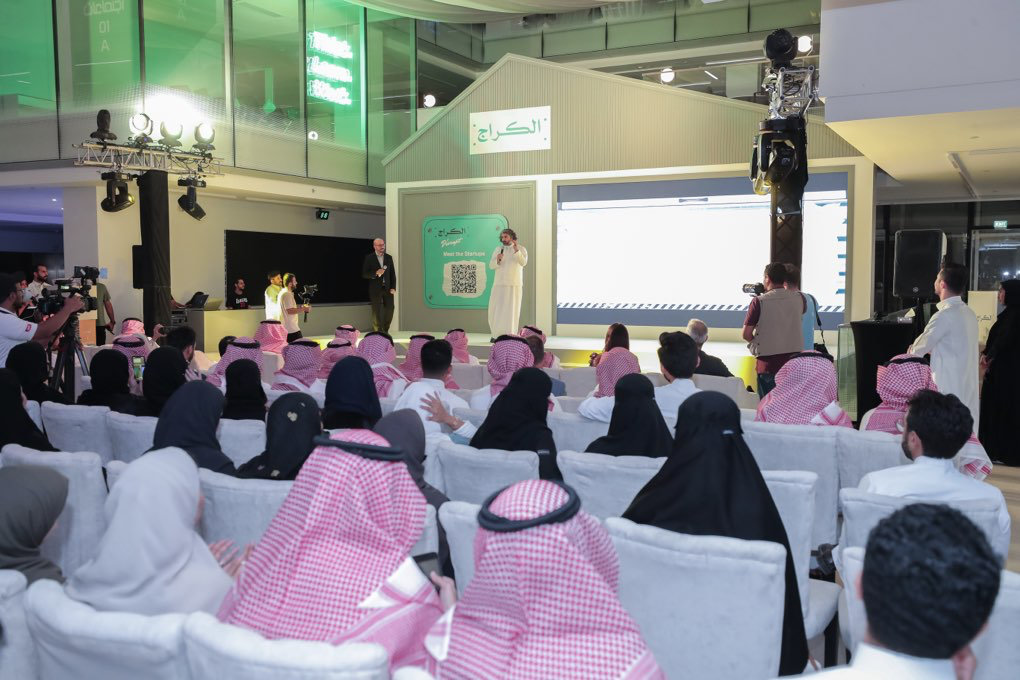RIYADH: Mindful of their carbon footprint, a growing number of people are opting to power their homes and businesses with solar photovoltaic systems rather than traditional energy sources. One Saudi startup is leveraging the power of artificial intelligence to help increase uptake.
Solar PV systems are a type of renewable energy technology that converts sunlight into electricity, making it a sustainable and environmentally friendly alternative to fossil fuel-generated electricity.
Despite the numerous benefits of transitioning to solar energy, including cost savings on electricity bills and greater environmental sustainability, the upfront investment required can be a significant barrier to wider adoption.
Abdulelah Habib, CEO and founder of OptimalPV, a distributive solar design startup founded in 2023, told Arab News that the high capital cost for solar systems is primarily due to the expensive materials required.

“This includes high-quality solar panels, inverters, and other essential components,” he said.
With recent advances in technology, solar PV systems are becoming more efficient and cost-effective, making them a popular choice for homeowners and businesses looking to reduce their carbon footprint and save on energy costs.
From solar panels on rooftops to large-scale solar farms in the desert, Saudi Arabia has embraced renewable energy sources to reduce its reliance on fossil fuels. The country aims to install 50 GW of solar capacity by 2030.
However, if the government wants to make good on its commitment to encourage the widespread adoption of renewable energy sources, it will need to find ways to make the technology more affordable and accessible to the general population.
“The company was founded to address the challenges of high costs and inefficiency in traditional solar PV system installations, aiming to make solar power more accessible and cost-effective through advanced artificial intelligence technology,” Habib said.

An AI-equipped robot helps install solar panels. (Shutterstock image)
OptimalPV’s AI-powered software automates the design of solar PV systems by using 3D modeling and optimization algorithms to create the most efficient and cost-effective layout without needing a site visit.
“While the installation and warranty costs are comparatively low, the operation and maintenance costs can be negligible over the 25-year lifespan of the system,” Habib said.
Unlike traditional systems that require manual design and site inspections, OptimalPV’s AI software optimizes the design process to reduce costs

OptimalPV’s AI-powered software automates the design of solar PV systems by using 3D modeling and optimization algorithms. (Supplied)
“The software uses advanced algorithms to determine the optimal number and placement of panels, considering factors like shading, orientation and solar irradiation,” Habib said.
Supported by The Garage, a tech startup incubator hosted by the King Abdulaziz City for Science and Technology, and the Royal Commission of Riyadh City, the company provides solutions for both residential and commercial buildings.
By providing information, addressing concerns about cost and installation, and offering incentives for adopting solar energy, OptimalPV encourages more individuals to take advantage of this renewable energy source.
Not only does it reduce installation costs. OptimalPV also maximizes the return on investment for homeowners.
“The company’s advanced design optimizes the efficiency and capacity of rooftop solar systems, making them capable of meeting high electricity demands in urban areas like Riyadh,” Habib said.

A new startup, The Garage focuses on local and international startups, scouting and inviting them to join The Garage’s programs and events. (Supplied)
“By optimizing the system design for maximum efficiency, many houses can potentially meet their full electricity needs through PV systems designed by OptimalPV.”
Habib said that by reducing upfront costs and ensuring maximum efficiency, OptimalPV helps homeowners to save more on electricity bills and achieve a quicker payback period.
OptimalPV also supports homeowners, local governments and the private sector throughout the process, from the initial feasibility study to post-installation monitoring.
“Customers can use an online tool to generate a feasibility report, including expected monthly savings and payback period,” Habib said.
Opinion
This section contains relevant reference points, placed in (Opinion field)
The company helps customers to find affordable financing options, where they are matched with trusted service providers for installation.
When it comes to post-installation monitoring, OptimalPV monitors the system’s performance to ensure it operates efficiently.
As Saudi Arabia continues to invest in solar energy infrastructure, it is start-ups such as these that are helping to pave the way for a cleaner and more environmentally friendly energy future.


































